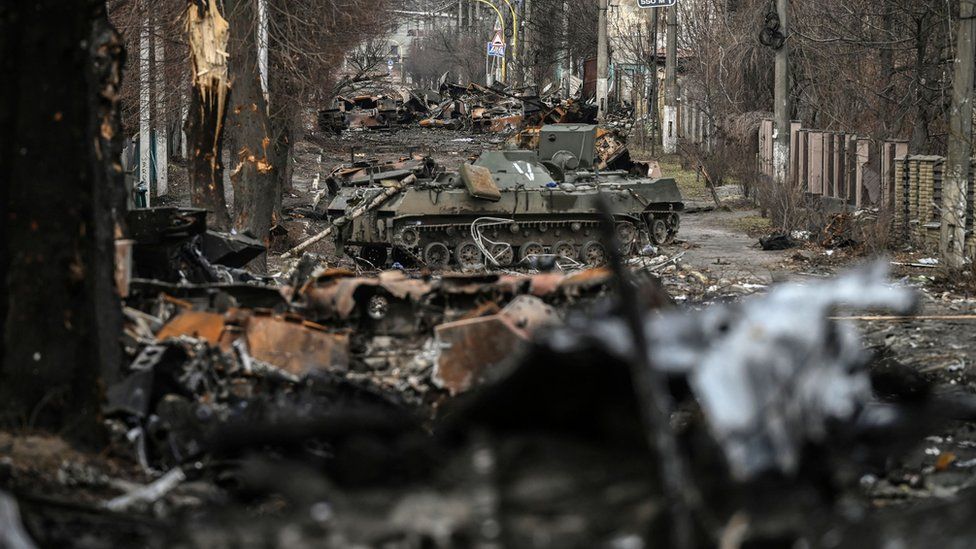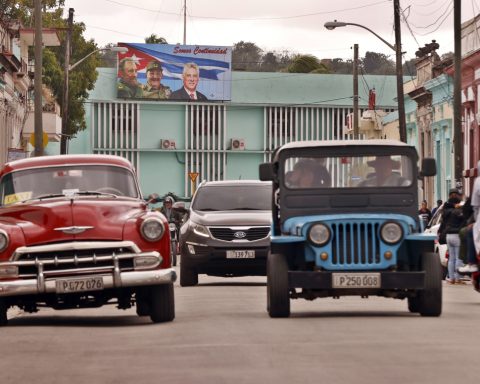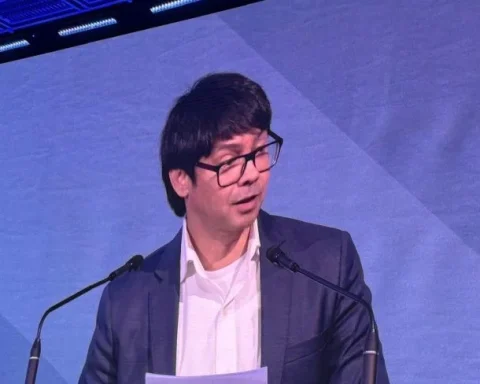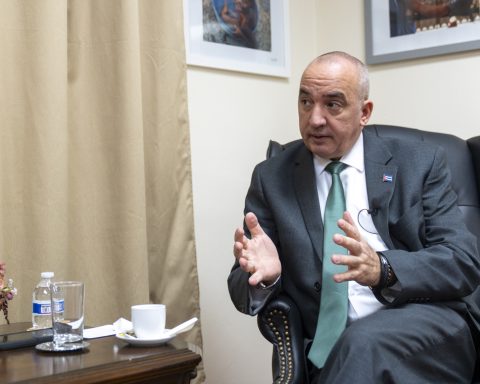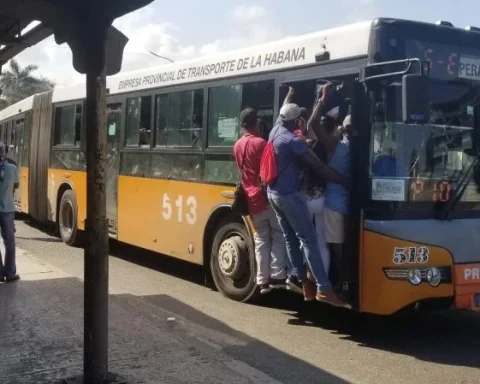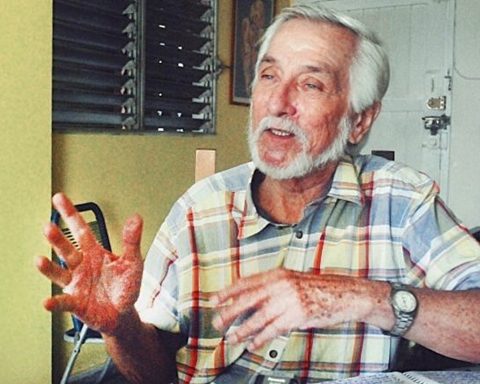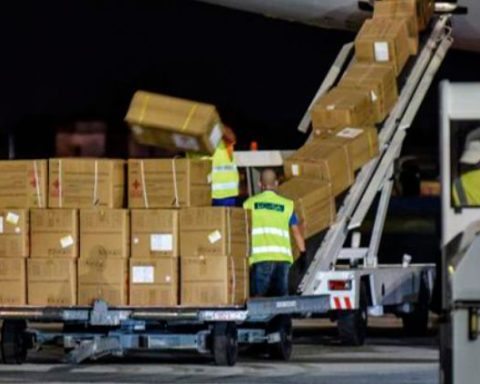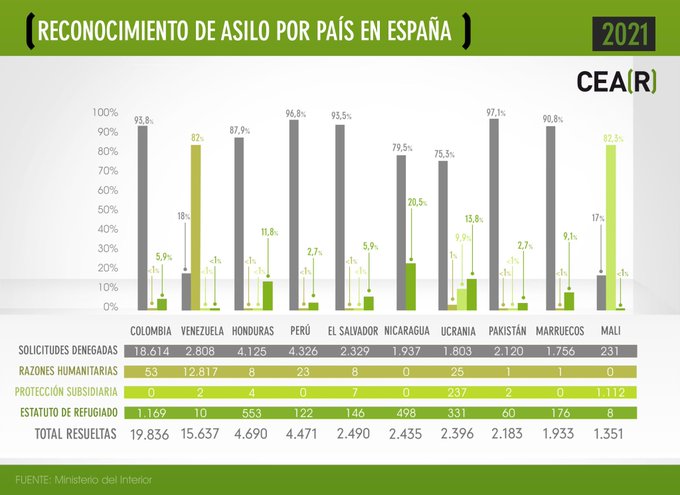Ukrainian President Volodimir Zelensky on Tuesday accused Russian troops of indiscriminately killing civilians “just for their pleasure” in an emotional speech before the United Nations Security Council, where he also questioned the mandate of the Security Council itself.
Zelensky made his speech a day after visiting the city of Bucha, on the outskirts of kyiv, where shocking images of bodies lying in the streetskilled with a shot to the neck, hands tied behind their backs and signs of torture.
The Ukrainian president recounted the consequences of Russia’s withdrawal from the city, describing entire families executed, people having their throats cut, and women raped and murdered in front of their children. Zelensky said Russia’s actions were no different from a terrorist group, “no different from other terrorists like ISIS,” except that Russia is a permanent member of the United Nations Security Council.
The Ukrainian leader criticized the body, asking the representatives: “Where is the security that the Security Council needs to guarantee? It is not there, although there is a Security Council.”
He added: “Ladies and gentlemen, I would like to remind you of Article 1, Chapter 1 of the UN Charter. What is the purpose of our organization? Its purpose is to maintain and ensure that peace is respected. And now the UN charter is literally violated starting with Article 1. So what is the point of all the other articles?
At least 1,480 civilians have been killed and at least 2,195 injured in Ukraine since the start of the invasion, that is, from February 24 to April 4, a UN official said at the meeting, citing updated figures from the Office of the High Commissioner for Human Rights (OHCHR).
In Bucha, bodies scattered in the streets and cellars were found by human rights groups and documented by independent journalists. Satellite images suggest that some bodies have been there since at least March 18.
In his speech, Zelensky also said that there was “not a single crime” that the Russians “have not committed,” claiming that the invading troops had “purposefully sought out and killed anyone who served our country.”
“They shot and killed women outside their houses, when they were just trying to call someone. They killed entire families, adults and children, and tried to burn the bodies,” said Zelensky, who visited Bucha on Monday after the alleged Russian massacres were reported.
He called for any Russian who has given “criminal orders” and “carried them out by killing our people” to be brought to justice, similar to the Nuremberg trials that occurred after World War II when the Nazis were put on trial.
Russia emphatically denies the allegations.
In turn, Russia has repeatedly denied the atrocities. The Russian ambassador to the United Nations, Vassily Nebenzia, responded to Zelensky’s comments, calling the accusations against the Russian military “unfounded.”
“We put on your conscience the baseless accusations against the Russian military, which are not confirmed by any eyewitnesses,” Nebenzia said.
The ambassador recalled Zelensky’s election to the presidency of Ukraine in 2019 and stated that the hopes that the president would end the fighting in the Donbas region “did not materialize.”
Nebenzia also repeated earlier claims: “A lot of lies about Russian soldiers and military continue to proliferate.”
Addressing Zelensky directly, the ambassador concluded his remarks by stating that Russia “came to Ukraine” to bring peace, not to “conquer land.”
Nebenzia’s words echoed those of Kremlin spokesman Dmitry Peskov, who called the accusations not only “unfounded, but a well-organized tragic show” and “a forgery to try to denigrate the Russian military.”
Europe expels Russian diplomats
In a clearly concerted action, the countries of the European Union, one by one, are expelling Russian diplomats from their capitals with the same argument: considering them a threat to their national security.
In total, this Tuesday there are already 247, from Germany, through France and Belgium, as well as Lithuania, Italy and the Iberian Peninsula: Portugal and Spain said goodbye to ten diplomats each, although in the lusitanian case the Ministry of Foreign Affairs said it’s a statement that many of those expelled were not ‘career diplomats’. The expulsion argument was the same for all, “personas non grata”, a common euphemism used in espionage cases.
So far, Moscow has not reacted to the expulsions.
New sanctions on Wednesday
Meanwhile, a White House official has announced that he will introduce a new sanctions package against Moscow on Wednesday, CNN reported.
The sanctions will be presented in coordination with the G7 and the European Union, and “will impose a very hard price economically, financially and in terms of technological isolation.”
They include a ban on new foreign investment in Russia, tightening restrictions on financial institutions and state-owned companies, as well as more government officials and their families.
